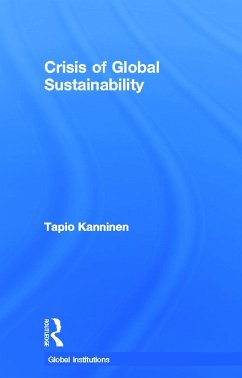"The book is scholarly in its depth of analysis, yet manages to be approachable for a general audience. Because of its emphasis on developing policy solutions, it is best suited to policy makers, scholars, and students.Kanninen uses pertinent examples and case studies to illustrate past failings in how individuals and institutions have responded to dire warnings about the Earth's future. For example, he illustrates how the scientific community may criticize - and reject-innovative solutions or approaches to problems because they run counter to accepted beliefs or methodologies." - Miriam Aczel, Imperial College London, ACUNS
"The book is scholarly in its depth of analysis, yet manages to be approachable for a general audience. Because of its emphasis on developing policy solutions, it is best suited to policy makers, scholars, and students.Kanninen uses pertinent examples and case studies to illustrate past failings in how individuals and institutions have responded to dire warnings about the Earth's future. For example, he illustrates how the scientific community may criticize - and reject-innovative solutions or approaches to problems because they run counter to accepted beliefs or methodologies." - Miriam Aczel, Imperial College London, ACUNS









